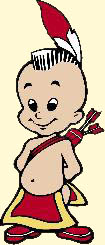A Man for All Seasons; The Prescience of John Wesley Powell and the Meaning of His Legacy TodayA RIVER RUNNING WEST
The Life of John Wesley Powell
By Donald Worster
Oxford University Press: 720 pp., $35
By Patricia LimerickOn the last page of "A River Running West," Worster briefly comments on Powell's standing, so espoused by Stegner and contemporary environmentalists, and he issues what we might call a "permit to admire": "Conservationists and environmentalists would rightly look back on him as one of their founding giants." But he also suggests that those who might want to reshape Powell, retrospectively, into a supporter of any early 21st-century political program will have a tough time of it. Worster lets us know that Powell had an unusual and progressive enthusiasm for the company of Indian people; inspired by his parents' ardent abolitionism, he believed that difference among races derived purely from culture and not from biological inferiority or superiority. And yet, as Worster thoroughly acknowledges, Powell felt certain that Anglo-American culture was far superior to Indian cultures. Near the end of his career, Powell announced his hearty approval of the good work done by the federal government in driving Indian people toward assimilation: "The lowest tribes are still children," he said, "and must be managed by a kindergarten system."John Wesley PowellJohn Wesley Powell (March 24, 1834–September 23, 1902) was a U.S. soldier, geologist, explorer of the American West, and director of major scientific and cultural institutions. He is famous for the 1869 Powell Geographic Expedition, a three-month river trip down the Green and Colorado rivers that included the first passage of European Americans through the Grand Canyon.
Powell served as second director of the US Geological Survey (1881–1894) and proposed policies for development of the arid West which were prescient for his accurate evaluation of conditions. He was director of the Bureau of Ethnology at the Smithsonian Institution, where he supported linguistic and sociological research and publications.
Beliefs and Ideas
As an ethnologist and early anthropologist, Powell was a student of the pioneering anthropologist Lewis Henry Morgan. Powell divided human societies into "savagery," "barbarism" and "civilization" based on levels of technology, family and social organization, property relations, and intellectual development. In his view, all societies progressed toward civilization. He was a champion of preservation and conservation. It was his conviction that part of the natural progression of society included a combination of efforts to maximize and make the best use of resources.Comment: Powell's view is probably what passed for enlightenment in his era. As an Indian advocate, he thought he was helping them by lifting them into civilization.
It took almost another century for activists to push through a radical alternative: "Leave us alone. Stop trying to change us. We'll decide what's best for us, thank you very much."
For more on the subject, see
Manifest Destiny = Pathology and
The Myth of Western Superiority.
Below: "Powell with Tau-gu, a Paiute, 1871-1872."

What Powell really thought of Indians:




1 comment:
OT - I think you were talking about indigenous people in Buffy the Vampire Slayer before, but you hadn't seen the episodes in question. Since LogoTV has been reshowing them on TV, they're available online now. Here's Inca Mummy Girl, Pangs (Thanksgiving), and The Pack.
Post a Comment